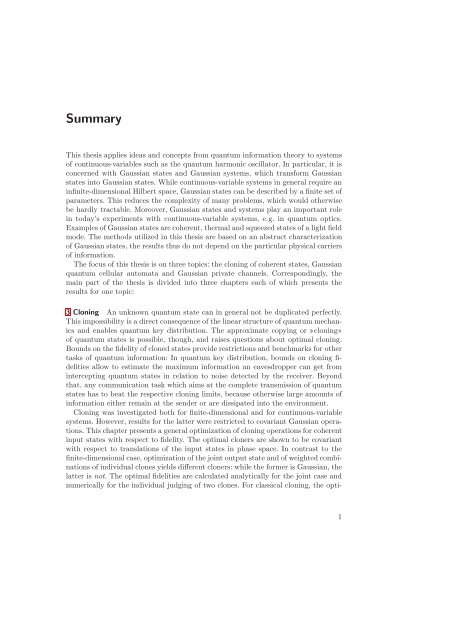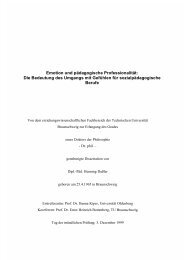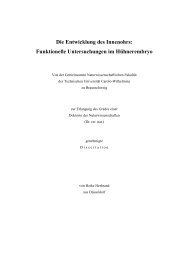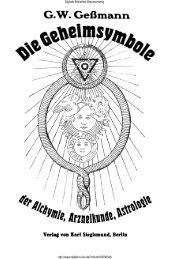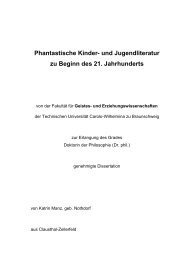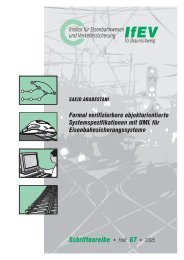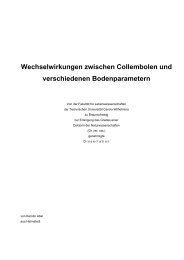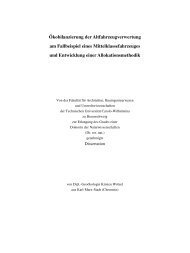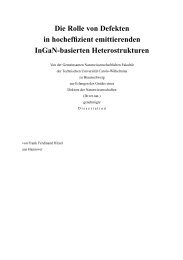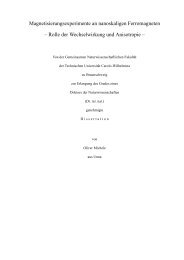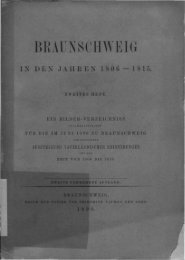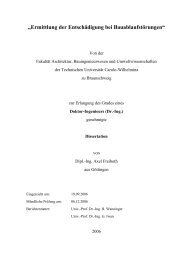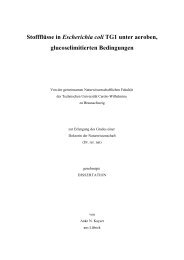Quantum Information Theory with Gaussian Systems
Quantum Information Theory with Gaussian Systems
Quantum Information Theory with Gaussian Systems
Create successful ePaper yourself
Turn your PDF publications into a flip-book with our unique Google optimized e-Paper software.
Summary<br />
This thesis applies ideas and concepts from quantum information theory to systems<br />
of continuous-variables such as the quantum harmonic oscillator. In particular, it is<br />
concerned <strong>with</strong> <strong>Gaussian</strong> states and <strong>Gaussian</strong> systems, which transform <strong>Gaussian</strong><br />
states into <strong>Gaussian</strong> states. While continuous-variable systems in general require an<br />
infinite-dimensional Hilbert space, <strong>Gaussian</strong> states can be described by a finite set of<br />
parameters. This reduces the complexity of many problems, which would otherwise<br />
be hardly tractable. Moreover, <strong>Gaussian</strong> states and systems play an important role<br />
in today’s experiments <strong>with</strong> continuous-variable systems, e.g. in quantum optics.<br />
Examples of <strong>Gaussian</strong> states are coherent, thermal and squeezed states of a light field<br />
mode. The methods utilized in this thesis are based on an abstract characterization<br />
of <strong>Gaussian</strong> states, the results thus do not depend on the particular physical carriers<br />
of information.<br />
The focus of this thesis is on three topics: the cloning of coherent states, <strong>Gaussian</strong><br />
quantum cellular automata and <strong>Gaussian</strong> private channels. Correspondingly, the<br />
main part of the thesis is divided into three chapters each of which presents the<br />
results for one topic:<br />
3 Cloning An unknown quantum state can in general not be duplicated perfectly.<br />
This impossibility is a direct consequence of the linear structure of quantum mechan-<br />
ics and enables quantum key distribution. The approximate copying orcloning<br />
of quantum states is possible, though, and raises questions about optimal cloning.<br />
Bounds on the fidelity of cloned states provide restrictions and benchmarks for other<br />
tasks of quantum information: In quantum key distribution, bounds on cloning fidelities<br />
allow to estimate the maximum information an eavesdropper can get from<br />
intercepting quantum states in relation to noise detected by the receiver. Beyond<br />
that, any communication task which aims at the complete transmission of quantum<br />
states has to beat the respective cloning limits, because otherwise large amounts of<br />
information either remain at the sender or are dissipated into the environment.<br />
Cloning was investigated both for finite-dimensional and for continuous-variable<br />
systems. However, results for the latter were restricted to covariant <strong>Gaussian</strong> operations.<br />
This chapter presents a general optimization of cloning operations for coherent<br />
input states <strong>with</strong> respect to fidelity. The optimal cloners are shown to be covariant<br />
<strong>with</strong> respect to translations of the input states in phase space. In contrast to the<br />
finite-dimensional case, optimization of the joint output state and of weighted combinations<br />
of individual clones yields different cloners: while the former is <strong>Gaussian</strong>, the<br />
latter is not. The optimal fidelities are calculated analytically for the joint case and<br />
numerically for the individual judging of two clones. For classical cloning, the opti-<br />
1


